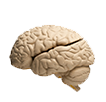ASSESSMENTS
ADHD
ADHD stands for Attention-Deficit/Hyperactivity Disorder. It is a neurodevelopmental disorder that affects both children and adults. ADHD is characterized by a persistent pattern of inattention, hyperactivity, and impulsivity that can interfere with daily functioning and quality of life.
An ADHD assessment tool is a standardized instrument used by healthcare professionals, psychologists, or psychiatrists to evaluate and diagnose Attention-Deficit/Hyperactivity Disorder (ADHD) in individuals. These tools typically involve a series of questions, observations, and sometimes cognitive tests to assess the presence and severity of ADHD symptoms, including inattention, hyperactivity, and impulsivity. The results help clinicians make an accurate diagnosis and develop appropriate treatment plans, which may include medication, therapy, or behavioral interventions. These tools aid in understanding the individual's specific ADHD-related challenges and guide the development of tailored interventions for better management of the condition.


Postpartum Depression
Postpartum Depression is a mood disorder that can affect women after childbirth. It is characterized by feelings of extreme sadness, anxiety, and exhaustion that may interfere with a woman’s ability to care for herself or her baby. Assessment tools for Postpartum Depression help in diagnosing and evaluating the severity of the condition, allowing for timely intervention and support. These assessments should be conducted by healthcare professionals to ensure that new mothers receive the necessary care and treatment to improve their well-being.
AUTISM
Autism, also known as Autism Spectrum Disorder (ASD), is a neurodevelopmental condition that affects an individual's social interaction, communication skills, and behavior. It is characterized by a wide range of symptoms and severity levels, which is why it's referred to as a "spectrum." Assessment tools for autism are used to diagnose and evaluate individuals suspected of having autism. Assessment tools for autism are crucial for early diagnosis and intervention, allowing individuals with autism to receive appropriate support and therapy to improve their quality of life. It's important to note that these assessments should be conducted by trained professionals to ensure accuracy and reliability.


PERSONALITY
Personality tests are psychological assessments designed to measure various aspects of an individual's personality, including their traits, behaviors, and characteristics. These tests are commonly used in clinical psychology, counseling, human resources, and personal development. There are different types of personality tests, including:
- Self-Report Inventories: These tests ask individuals to answer a series of questions about themselves. The responses are then scored to provide insights into personality traits and characteristics. Examples include the Myers-Briggs Type Indicator (MBTI) and the Big Five Personality Traits (OCEAN: Openness, Conscientiousness, Extraversion, Agreeableness, Neuroticism).
- Projective Tests: These tests present ambiguous stimuli, such as images or words, and ask individuals to respond with their thoughts, feelings, or interpretations. The Rorschach inkblot test, which you asked about earlier, is one example of a projective test.
- Observational Assessments: Instead of asking individuals directly, observers assess and rate an individual's behavior in various situations. This approach is often used in clinical settings.
- Situational Judgment Tests (SJT): These tests present individuals with hypothetical scenarios and ask them how they would respond in those situations. SJTs are often used in employment assessments to gauge how individuals might handle workplace challenges.
- Trait Assessments: These assessments focus on specific personality traits or dimensions, such as assertiveness, anxiety, or locus of control. They aim to measure particular aspects of personality in-depth.
- Psychometric Tests: These tests are designed to be reliable and valid measures of personality traits. They often involve rigorous statistical analysis to ensure accuracy and consistency.
- Cultural Adaptation Tests: Some personality tests have been adapted or developed specifically for certain cultural or linguistic groups to ensure their relevance and fairness.





